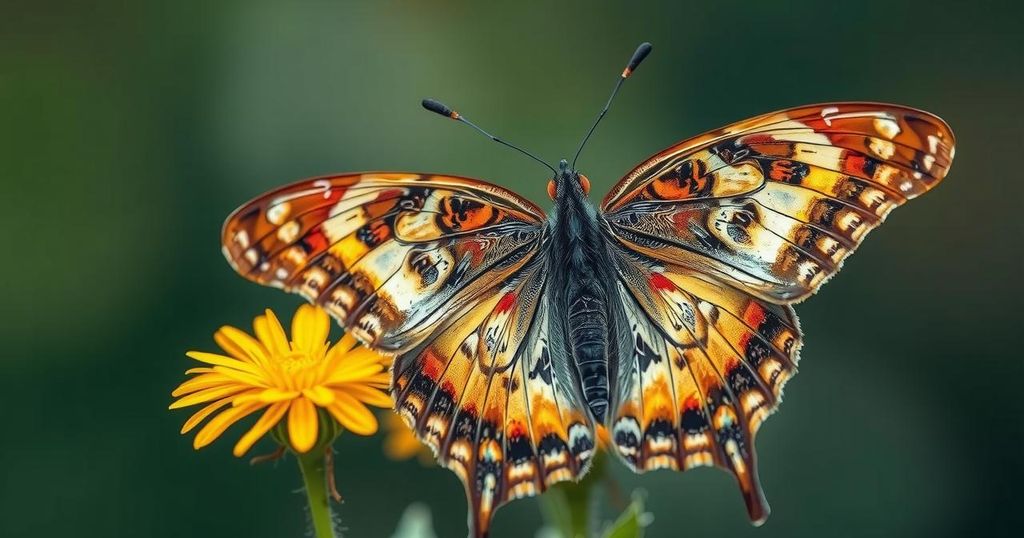This article examines the impact of climate change on butterfly populations in Greece, where rising temperatures and habitat destruction are leading to food scarcity and potential size reduction among species. It highlights research efforts aimed at understanding these changes and calls attention to the broader implications for biodiversity.
In a controlled environment at a zoo near Athens, vibrant butterflies are observed extracting nourishment from orange slices, thereby avoiding the perils posed by the transforming climate outside, which threatens their populations in Greece and globally. The challenges posed by rising temperatures are exacerbating survival difficulties for the approximately 237 butterfly species native to Greece. The availability of food sources is diminishing, the duration of flowering seasons is contracting, and there is emerging evidence suggesting that the butterflies may be physically shrinking in size. This phenomenon is not isolated to Greece but resonates on an international scale, evident in countries such as Mexico and the United Kingdom, where significant declines in certain butterfly species have been recorded. Konstantinos Anagnostellis, an agronomist participating in the MEIOSIS research initiative—a project named after the Greek term for ‘shrinking’ and conducted by the University of Ioannina—has noted, “Climate change is impacting butterflies … that rely on temperature to perform essential activities such as mating, reproduction, growth, and feeding.” The project focuses on assessing the body weight of over 50,000 butterfly specimens over a century-long timeline to understand how climate change is contributing to their decreasing size. The adverse effects of climate change compel butterflies to seek cooler environments, often leading them to areas where food scarcity is prevalent. Additionally, the increasing frequency of wildfires in Greece further diminishes their food supply due to the destruction of grasslands. Anagnostellis warns, “If these plants are burned, there is a risk of direct mortality for the larvae, and we may not have adult butterflies to reproduce, forcing them to migrate to other areas.”
Climate change is a critical issue affecting various ecosystems and species worldwide. In Greece, the impact on butterfly populations serves as a poignant example of how rising temperatures and changing environmental conditions can disrupt natural behaviors and food sources essential for their survival. The study of butterflies is significant not only for conservation efforts but also for understanding broader ecological changes. As insects like butterflies are sensitive indicators of environmental health, their declining numbers signal potential distress within their habitats that could affect other species, including humans.
In conclusion, the consequences of climate change are profoundly affecting the butterfly species in Greece, as evidenced by diminishing food sources, reduced flowering periods, and potential decreases in body size. The ongoing research led by the University of Ioannina underscores the urgent need for conservation efforts and highlights the interconnectedness of climate change and biodiversity. Protecting these fragile ecosystems is essential to ensure the survival of butterfly populations and, by extension, the health of the wider environment.
Original Source: www.swissinfo.ch






